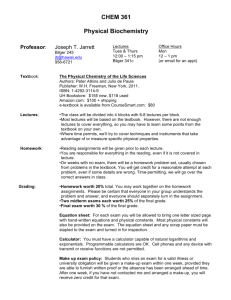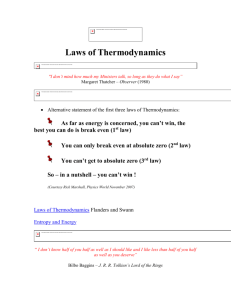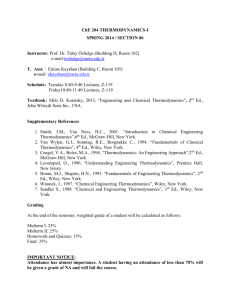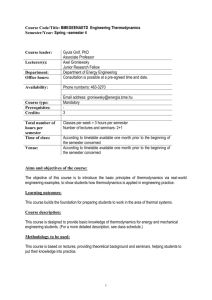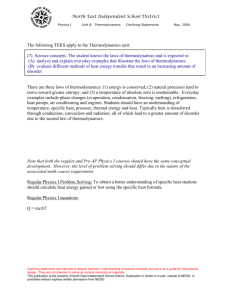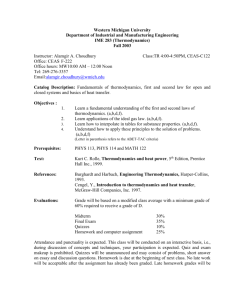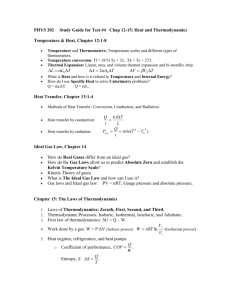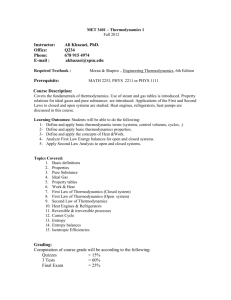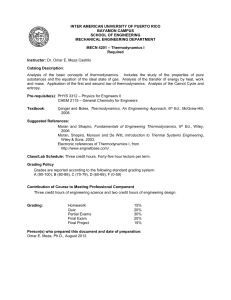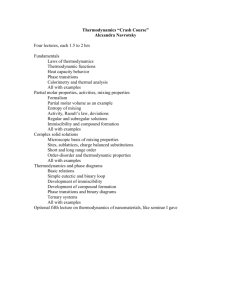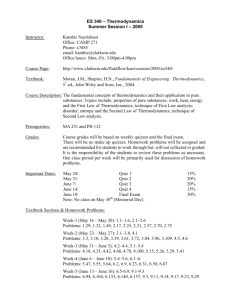CBE 531
advertisement
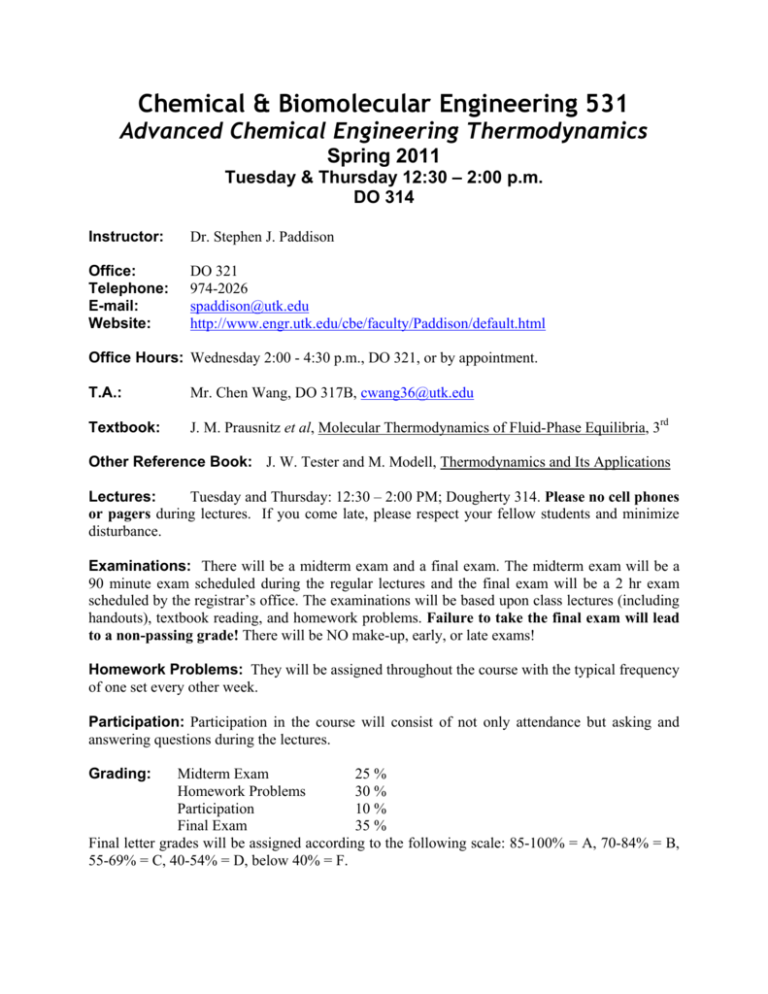
Chemical & Biomolecular Engineering 531 Advanced Chemical Engineering Thermodynamics Spring 2011 Tuesday & Thursday 12:30 – 2:00 p.m. DO 314 Instructor: Dr. Stephen J. Paddison Office: Telephone: E-mail: Website: DO 321 974-2026 spaddison@utk.edu http://www.engr.utk.edu/cbe/faculty/Paddison/default.html Office Hours: Wednesday 2:00 - 4:30 p.m., DO 321, or by appointment. T.A.: Mr. Chen Wang, DO 317B, cwang36@utk.edu Textbook: J. M. Prausnitz et al, Molecular Thermodynamics of Fluid-Phase Equilibria, 3rd Other Reference Book: J. W. Tester and M. Modell, Thermodynamics and Its Applications Lectures: Tuesday and Thursday: 12:30 – 2:00 PM; Dougherty 314. Please no cell phones or pagers during lectures. If you come late, please respect your fellow students and minimize disturbance. Examinations: There will be a midterm exam and a final exam. The midterm exam will be a 90 minute exam scheduled during the regular lectures and the final exam will be a 2 hr exam scheduled by the registrar’s office. The examinations will be based upon class lectures (including handouts), textbook reading, and homework problems. Failure to take the final exam will lead to a non-passing grade! There will be NO make-up, early, or late exams! Homework Problems: They will be assigned throughout the course with the typical frequency of one set every other week. Participation: Participation in the course will consist of not only attendance but asking and answering questions during the lectures. Grading: Midterm Exam 25 % Homework Problems 30 % Participation 10 % Final Exam 35 % Final letter grades will be assigned according to the following scale: 85-100% = A, 70-84% = B, 55-69% = C, 40-54% = D, below 40% = F. Misconduct: Cheating on examinations will not be tolerated. Anyone found cheating (copying another exam, asking others for answers, or using textbook or notes during exams) will be asked to leave and will receive a failing grade (i.e. F) for the course. Extra Credit: There will be NO individual extra credit work assigned. Course Objectives: Classical thermodynamics is to a large extent a mature field characterized with a theoretical structure that is a set of natural laws governing the behavior of macroscopic systems. These laws are derived from generalizations of empirical observations and are largely independent of any theory or hypothesis concerning the molecular-level behavior of matter. The difficulty of thermodynamics is not in the understanding of the theory (or even the derivation) but rather in the practical application. Real world processes are usually far from reversible, adiabatic, or well mixed; very rarely are they isothermal or at equilibrium; and few mixtures of industrial importance are ideal. Hence, a pragmatic approach must be taken in the application of thermodynamics to real systems. This will require redefining the real problem in terms of idealizations to which thermodynamic principles and methodologies may be applied. This course will deal with phase equilibria with applications including solutions, polymers, and electrolytes. Topics: (1) Review of classical thermodynamics of phase equilibria (2) Fugacity: pure liquids and solids, gas and liquid mixtures (3) Simple models and theories of solutions (4) Polymers (5) Electrolyte solutions
